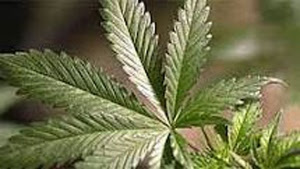A whole generation of Canada's youth going up in smoke
A 2013 UNICEF report found that the prevalence of self-reported cannabis use among youth aged 11, 13 and 15 in the preceding year was highest in Canada at 28 per cent. Findings in other countries included:
 Norway — 4%.
Norway — 4%.Spain — 24%.
The Netherlands — 17%.
United Kingdom — 18%.
U.S. — 22%.
At 28%, more Canadian kids are lighting up than those in countries where pot is legal!
In the CMAJ (Canadian Medical Journal) paper, the authors also compare the experiences with marijuana policies in the Netherlands, Spain, Uruguay and three U.S. states, where cannabis is legal for recreational use.
For example, Spithoff said Uruguay has a model that could be adapted for use in Canada, because it puts public health first. In contrast, the Dutch model hasn't solved the "back door" illegal supply problem.
Uruguay has licensed producers and a government commission that purchases cannabis from growers. The government sells it to individuals through pharmacies. The commission has control over production, quality and prices and has the ability to undercut the illegal market. Uruguay has also set a cutoff for cannabis-impaired driving.
Education, Suicide, Sanity, Maturity
Frequent pot use by teens is linked to a greater likelihood of incomplete education, suicide attempts and other harmful effects, say researchers in Australia and New Zealand, who suggest their findings should be considered as countries move to decriminalize or legalize cannabis.
Marijuana is the most widely used illicit drug worldwide, and statistics suggest that adolescents in some countries are starting to use it at a younger age and more heavily.
In 2013, about 23 per cent of students surveyed in Ontario said they’d used cannabis at least once in the previous year, according to an annual report from the Centre for Addiction and Mental Health.
The prevalence of past-year cannabis use among Canadians aged 15 years and older was 10 per cent in 2012, the Canadian Alcohol and Drug Use Monitoring Survey suggested.
Cannabis use is more common among those with low educational attainment, but there’s a debate about whether marijuana use is a marker or a cause. In other words - does it make you stupid or were you stupid in the first place for using it? A study published in the journal The Lancet Psychiatry helps to answer some questions.
Long-running studies
Researchers analyzed data on up to 3,765 participants who used marijuana from three long-running studies in Australia and New Zealand. The studies compared those who had never used pot with those who had and their developmental outcomes, which were assessed for the participants up to 30 years of age.
"Study findings suggest that adolescent cannabis use is linked to difficulties in successfully completing the tasks that mark the transition to adulthood," study author Richard Mattick, a professor of drug and alcohol studies at the University of New South Wales and his co-authors concluded.
This is more confirmation of what I have been saying since the late 1970s - pot retards, or stops cold the maturing process of regular users. In my observations this effect is not restricted to any age group.
"Prevention or delay of cannabis use in adolescence is likely to have broad health and social benefits."
Not even mentioned in this article is the frightening research on use of pot by young teens and a dramatic increase in the likelihood of developing full-blown, permanent schizophrenia.
The findings are relevant given the move in some countries to decriminalize or legalize cannabis, which raises the possibility that the drug might become more accessible to young people, the researchers said.
In the study, those who used marijuana daily before age 17 were less likely to complete high school or earn a degree compared with those who’d never used it.
Cannabis use was associated with increased risk of suicide attempts and later cannabis dependence and use of other illicit drugs, said Merete Nordentoft, a professor of psychiatry at the University of Copenhagen, in a journal commentary published with the study.
Harms of frequent cannabis use
Nordentoft said the "convincing results" are valuable and appropriate given several U.S. states and countries in Latin America and Europe have decriminalized or legalized cannabis and allow unrestricted marketing of the drug.
Increasing evidence shows that brain development during adolescence can be harmed by frequent cannabis use and cognitive functions can be permanently reduced, she said.
Young people need to develop and mature and prepare themselves to meet demands in adult life.
"Cannabis use, especially frequent use, impairs this development and reduces the likelihood that a young person will be able to establish a satisfactory adult life," Nordentoft concluded.
The researchers acknowledged that the measurements were based on self-reported data, which could lead to over-reporting or under-reporting of cannabis use. They said rates of cannabis use by young people in their study are similar to those in Canada, the U.S. and the U.K., but the social and legislative context of cannabis varies between regions.
The study was funded by the Australian Government National Health and Medical Research Council.


No comments:
Post a Comment